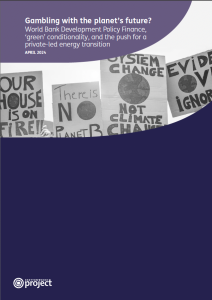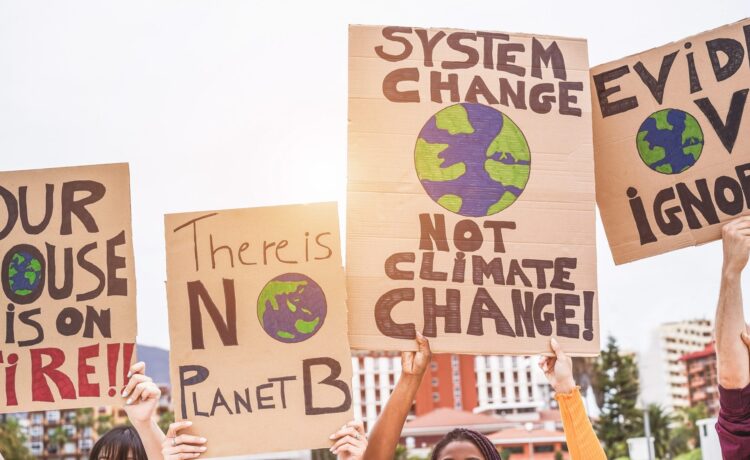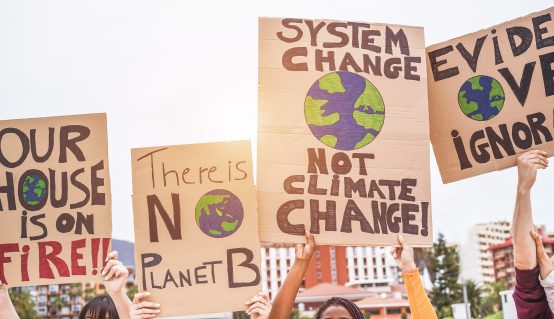Environment
Analysis
9 April 2024 | Reports
Read the report here.

 In an age defined by global crises, debt-burdened low- and middle-income countries (LMICs) have received limited international support in the wake of the Covid-19 pandemic, and now face austerity measures. This situation is exacerbated by a new developing world debt crisis, foreclosing the possibility of public investments needed to achieve the Sustainable Development Goals and avert the worst impacts of the climate crisis.
In an age defined by global crises, debt-burdened low- and middle-income countries (LMICs) have received limited international support in the wake of the Covid-19 pandemic, and now face austerity measures. This situation is exacerbated by a new developing world debt crisis, foreclosing the possibility of public investments needed to achieve the Sustainable Development Goals and avert the worst impacts of the climate crisis.
In this troubling context, the argument emanating from the World Bank, other international financial institutions (IFIs), G20 governments, and many think tanks is that ‘there will never be enough public money’ to solve global challenges. This extends to efforts to decarbonise the energy sector in LMICs. Here, the World Bank plays a key role in advocating for a private sector-led approach to power decarbonisation, attempting to use scarce concessional finance to crowd in private investors.
A new report from the Bretton Woods Project finds that World Bank Development Policy Financing (DPF) – where borrowing countries agree to undertake specific conditions in exchange for budget support loans, grants or guarantees – forms a key dimension of the Bank’s approach to energy sector reform. Our review of energy sector conditionality in DPF from fiscal years 2018 to 2023 reveals a pattern of promoting neoliberal reforms in many countries’ energy sectors. These reforms, which are consistent with the Bank’s approach since the 1990s, aim to unbundle incumbent power utilities and increase private sector involvement – with recent years seeing a growing emphasis on addressing climate change and decarbonising energy systems.
This report aims to stimulate a wider debate on whether a private sector-led approach to the energy transition – especially in the Global South – is viable, and what trade-offs this approach implies. The report argues this a private-led transition faces challenges on at least two major fronts: Firstly, there are reasons to be concerned about the likelihood of the success of this policy paradigm on its own terms, as creating ‘bankable’ green projects in LMICs is far from straightforward. Secondly, aligning the ‘bankability’ of projects (i.e. investor interests) with a just energy transition that puts the rights of citizens in LMICs at its core presents an even greater challenge – creating risks that Global South states and citizens will bear the risks and costs associated with this private-led approach.
The report argues that the World Bank should, in the first instance:
- Re-orient World Bank DPF financing towards helping countries achieve a green energy transition rooted in energy sovereignty and in strong national ownership.
- Increase the transparency of DPF operations overall, to allow for increased public and parliamentary oversight.
This report has been produced as part of BWP’s environmental advocacy work. For any questions related to the project or the report itself please contact Jon Sward, Environment Project Manager, at [email protected]
Read the report here.
















